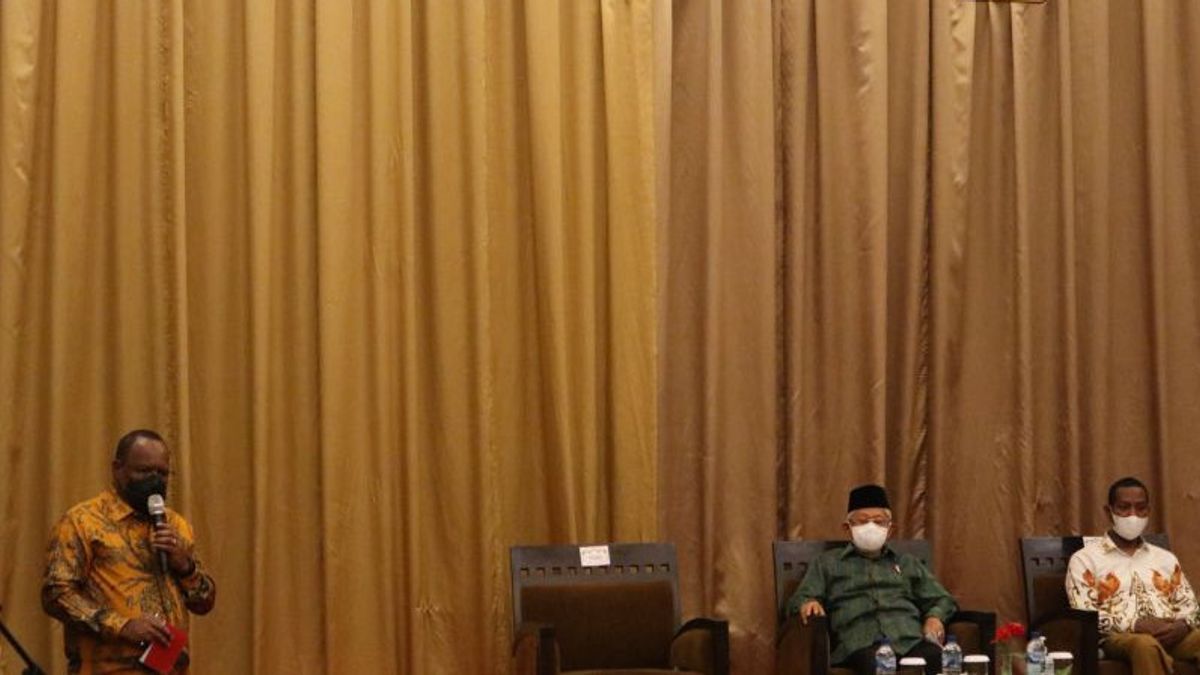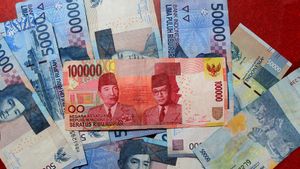PAPUA - Deputy Minister of Home Affairs John Wempi Watipo said the government is still looking for the State Civil Apparatus (ASN) who is an Indigenous Papuan (OAP) to fill the ASN quota in three New Autonomous Regions (DOB).
"Regarding the filling of ASN officials in 3 new DOBs, I say 80 percent must be native to the region, not from the center because many regional sons and daughters meet the requirements, but not many also register," said John Wempi in Merauke, South Papua, Antara, Wednesday, November 30.
John Wempi conveyed this while accompanying Vice President Ma'ruf Amin to hold an audience with the Acting Governor of South Papua, Apolo Safanpo, Member of the Regional Leadership Coordination Forum (Forkopimda) of South Papua province, Member of the Merauke Religious Harmony Forum (FKUB).
One of the religious figures is the Archbishop of Merauke Mgr Petrus Canisius Mandagi, as well as Merauke community leaders including the former Merauke Regent Marine John Gluba Gebse.
"Because 1 province needs 1,056 ASN, but in South Papua it has only been filled with 900 ASN from the need of 1,056 so it is hoped that it can be filled immediately because there are still many employees in the parent province of approximately 11 thousand. I hope that you are open to accepting brothers from the parent province to take part in filling positions and administering government in 3 DOB," added John Wempi.
Article 14 paragraph 4 of the DOB Law states "The state civil apparatus as referred to in paragraph (1) and paragraph (2) is prioritized by civil servants and government employees with a OAP work agreement which because of its duties and capabilities is needed to support the administration of the South Papua Provincial government."
While in the explanation paragraph 4 it is stated "Civil Servants and government employees with OAP work agreements a maximum of 80 percent".
According to John Wempi, the Ministry of Home Affairs (Kemendagri) is tasked with overseeing government administration in the three new DOBs, namely to lay a strong initial foundation.
"Regarding infrastructure, it is the duty of the central government, namely to build the governor's office, the MRP office (Papuan People's Assembly), the DPRP office (Papuan People's Representative Council) and the OPD office (regional apparatus organization) as the responsibility of the central government from 2023-2025 because it is the central government's duty to take over infrastructure development," said John Wempi.
This means that in the next three years, the central government will specifically oversee the government process in the three DOBs until there is a definitive governor based on simultaneous elections and regional elections in 2024.
"From the results of our discussion, South Papua will later form its own MRP because the current MRP ended last November 20 and the West Papuan People's Assembly ended on November 21, so we took a policy to extend it until June 2023 and the Acting Governor will form a selection committee for the MRP so that it can run in the 2024 simultaneous elections," explained John Wempi.
One of the leaders of the people of South Papua, John Gluba Gebse, in the discussion said that the acceleration of development in Papua could occur if there was a competition between provinces on the island.
"There have been 6 or 7 provinces, with special special autonomy funds (special autonomy), we hold competitions with all provinces because with competition, acceleration will occur. All provinces will maintain the dignity of the province so that they are not busy fighting, but busy building Papua Raya. We ask that there is a design for provincial competition in Papua," said John Gluba Gebse.
Gebse also asked for an increase in the status of two institutions in South Papua, namely Merauke Air Base (Lanud) from type B to increase to type A and Merauke Police to become Polda.
"Lanud Merauke for guarding the Indonesian air supply bordering the two countries and also increasing the status of the Merauke Police because it is now a province (South Papua)," said Gebse.
Gebse also requested that the ASN rules originating from the Papuan Indigenous People (OAP) actually be implemented.
"Give space for Indonesian citizens from South Papua to grow and develop. We control 80 percent (ASN from OAP) space properly and instead does not turn into an arena of disappointment because 80 percent of the rules are not realized. The space we ask not to be filled with officials from other places, let us learn to do things in Indonesia, learn to be responsible," added Gebse.
The English, Chinese, Japanese, Arabic, and French versions are automatically generated by the AI. So there may still be inaccuracies in translating, please always see Indonesian as our main language. (system supported by DigitalSiber.id)
Most Popular Tags
#Prabowo Subianto #New Year #pdip #Hasto Kristiyanto #nataru #NatalPopular
27 Desember 2024, 00:30
27 Desember 2024, 02:36
27 Desember 2024, 01:25









